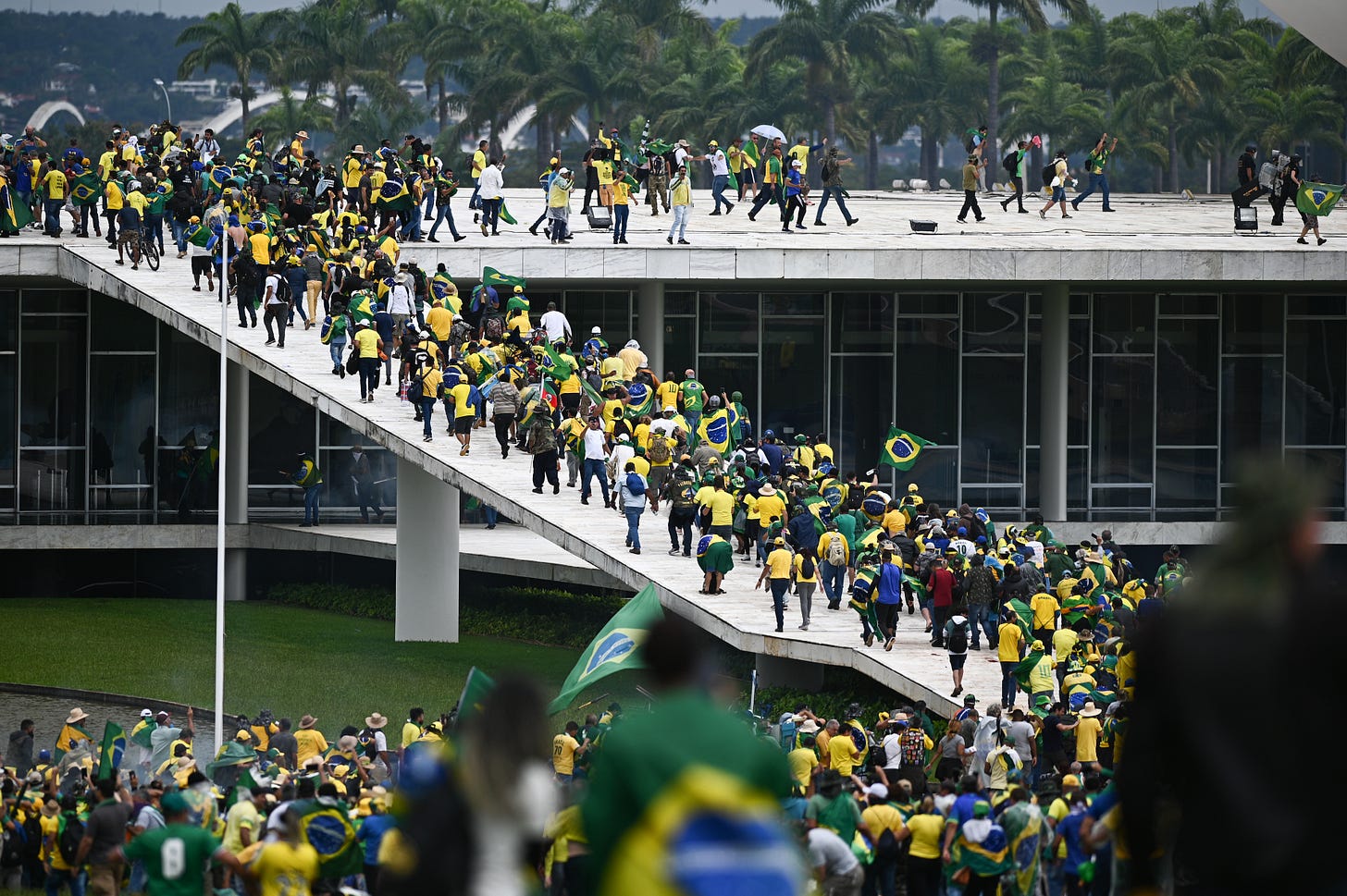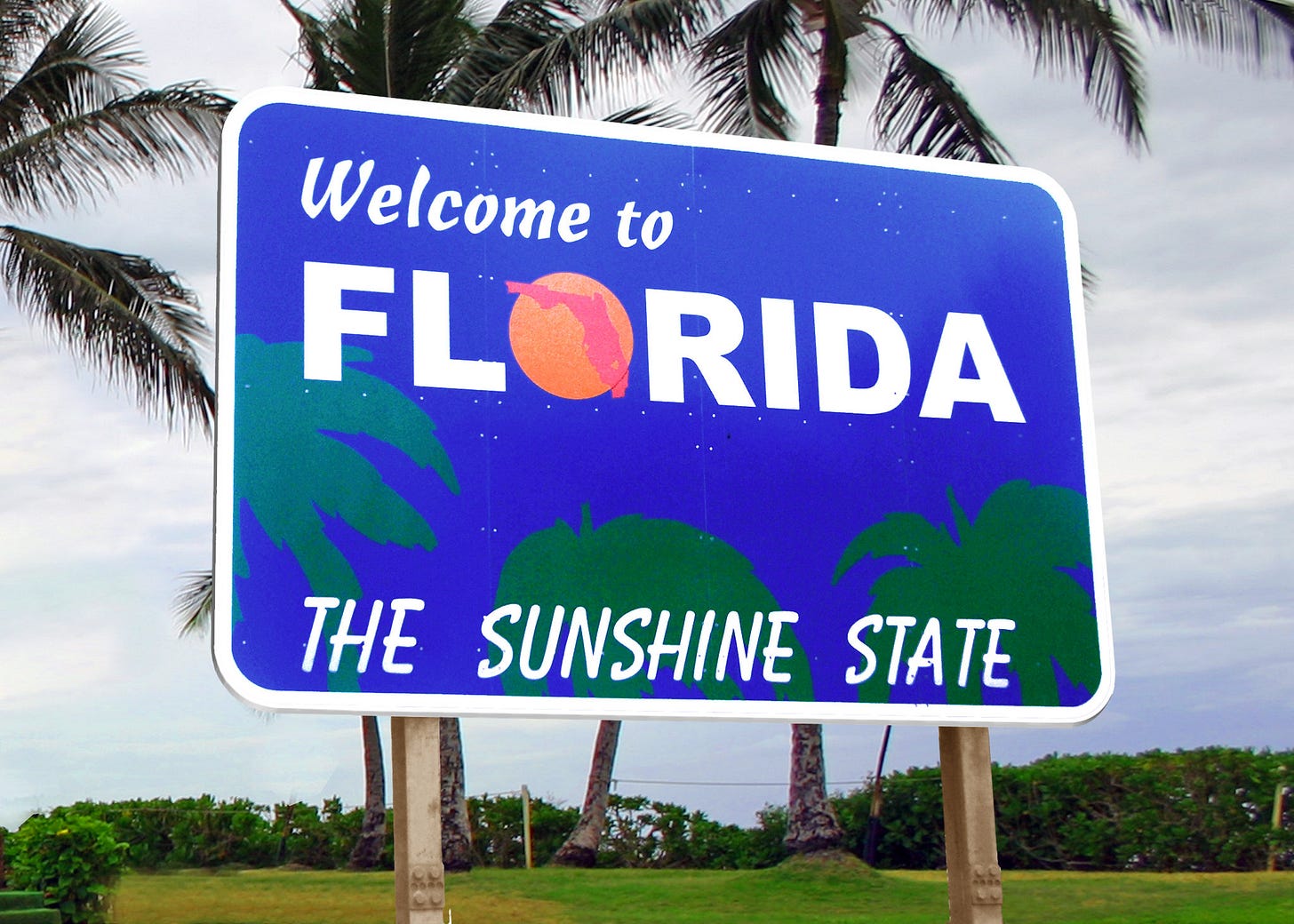We're All Living in America: Brazilian Florida Man Capitol Riot Edition
While Bolsonaro explores right-wing haven Florida, his Internet-brained followers attempt a very American coup d'etat.
Supporters of right-wing Brazilian ex-president Jair Bolsonaro stormed Brazil’s capitol building and other government headquarters on Sunday, in response to Bolsonaro losing the election. Do we really have to spell out whose playbook they were borrowing from?

Bolsonaro’s supporters are not just influenced by Anglo-American political culture — they’re an active vector for it to enter the country. Bolsonarism shares a lot of U.S. right-wingers’ fixations, including QAnon conspiracy theories, Evangelical-inspired religious support for Israel, a hostile obsession with liberal activist billionaire George Soros, and an equally-hostile obsession with social media moderators.
Although it’s a bit of a cliche to call foreign right-wing politicians the “Donald Trump” of their country, Bolsonaro fits the mold quite well. His demeanor and his goofy media presence are more Trumpian than Trump himself. Or, as the historian Greg Grandin puts it, Bolsonaro is “a caricature of a caricature.”
Brazil has one important difference from the United States. The country was ruled by an anticommunist military regime from 1964 to 1985, and Bolsonaro served as a paratrooper during that era. Bolsonarist fantasies about coups d’etat and violent retribution are more than idle words.
Or maybe not. The capitol riot was a flop. Brazilian security forces unceremoniously cleared out the would-be putschists on Sunday, and authorities are now purging officials who failed to stop the riot.
“All great world-historic facts and personages appear, so to speak, twice,” Karl Marx once wrote. “The first time as tragedy, the second time as farce.”
Bolsonaro himself has been hanging out in Florida and gawking at American convenience stores since shortly after he lost the election. After the riot, Democratic congresspeople Alexandria Ocasio-Cortez and Joaquin Castro drew attention to his presence on U.S. soil.
Florida has long been a haven for Latin American right wingers. Most famously, the state hosted a wave of Cuban refugees after the 1959 revolution. They were later joined by Nicaraguans and Venezuelans fleeing their own left-wing regimes. Colombians who backed their government against Communist rebels in Colombia’s six-decade civil war also make up part of the state’s population.
Other Floridians assimilated into the political and media culture set by the exiles. Anglo-American media has often struck a puzzled and condescending tone when talking about “Florida Latinos” who vote Republican, as if Latin American countries don’t have political divisions and right-wing constituencies of their own.
Given all the déclassé newcomers with international networks and an anticommunist vendetta, southern Florida became a perfect environment for Cold War intrigue. The militant Cuban opposition used Miami as a base of operations. So did Nicaragua’s Contra rebellion and the drug traffickers who sustained it.
More recently, the president of Haiti was assassinated by Colombian mercenaries as part of a plot hatched in Miami.
After the Bolsonarist riot, Brazilian authorities have been seeking to arrest Anderson Torres, secretary of public security for the federal district. Torres is believed to be out of the country at the moment. Can you guess which U.S. state he flew to, according to Brazilian media?




